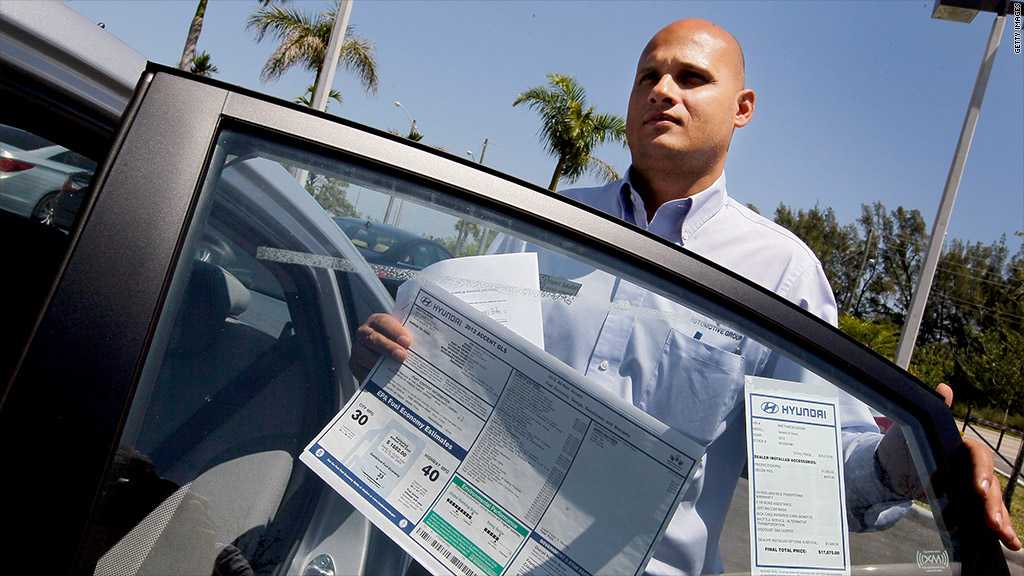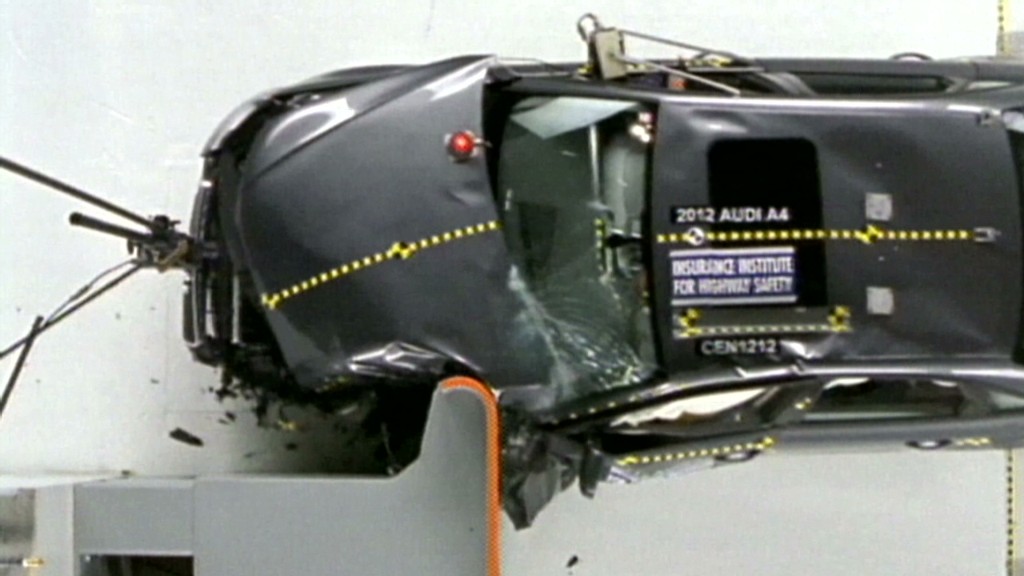
The Obama administration finalized new fuel economy rules Tuesday that within 12 years will almost double today's standard for cars and light trucks to 54.5 miles per gallon.
The rules, which have been in the works for several years, will add thousands of dollars to the cost of new cars. But in the long run, regulators say, drivers will spend less on gas, outweighing the additional cost at the dealership. They say the rules will also help reduce the nation's oil imports from OPEC by about half.
The standard takes effect in 2024 when 2025 model-year cars begin to hit dealer lots.
"These fuel standards represent the single most important step we've ever taken to reduce our dependence on foreign oil," said President Obama in a statement announcing the rules.
The standard was praised by environmental groups. Major automakers such as General Motors (GM) and Ford Motor (F), which agreed to the new fuel standards when they were proposed by the Obama administration last year, are investing billions to develop new fuel-efficient cars and electric vehicles.
"What we know is that consumers want higher fuel efficiency in their cars and trucks and GM is going to give that to them," said a statement from GM on Tuesday. "While the requirements are aggressive, we intend to pursue them vigorously."
Related: Alternative green cars
But the rules have some critics, including many conservative members of Congress. They object to the higher vehicle cost, what they say will be reduced vehicle choices for drivers who want large cars or trucks, and say safety will suffer as a result of new lighter vehicles.

"The rule finalized today by the Obama Administration will hurt American consumers by forcing them to drive more expensive and less safe automobiles," said a statement by the Republican leaders of the House Oversight and Government Reform Committee, which had asked that the rules be reevaluated.
While the automakers have signed off on the rules, their dealership organization expressed concern. The National Automobile Dealers Association estimates an average $3,000 increase in the price of each vehicle to comply with the rules. It says that will put a new car out of reach to an estimated 7 million potential buyers.
"As this rule ignores the essential role that consumers play, Congress needs to continue to review these regulations to ensure that affordable vehicles are available to all Americans," said Bill Underriner, chairman of the dealers' trade group.
Related: Cars you won't see in 2013
The current mileage rules call for 29.7 mpg. The new rules will gradually start to take effect with the model year 2017 cars and raise the mileage standards from there.
"We know that these standards are both achievable and cost-effective," said Environmental Protection Agency Administrator Lisa Jackson during a press call Tuesday.
But if the industry has problems meeting the new standards, the rules do have a review process built in that could reduce the fuel efficiency target.

